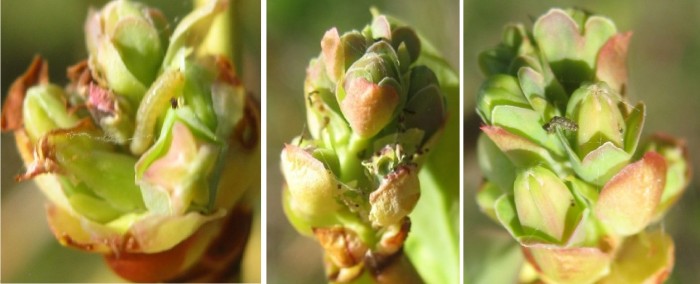Winter Moth Update
Here is a new Pest Alert from Heather Faubert with URI Cooperative Extension.
To Fruit Growers:
Now is a good time to check your blueberry buds and see how well your insecticide applications worked to control winter moth caterpillars. I’m seeing mixed results – some applications worked well and in other locations, repeat spraying has been necessary.

Blueberry buds with caterpillars, frass and dead caterpillars. Tease open buds to see frass or caterpillars inside.
Look now for insect frass (droppings) and caterpillars. The caterpillars are still rather hard to see, so if you find more than a little bit of frass in blueberry buds, consider applying an insecticide again. Caterpillars are about mid-way through their life cycle. Starting soon, as caterpillars become larger, people will start noticing holes in leaves and frass dropping from trees.
DiPel or other Bt insecticides should be effective now and kills only caterpillars so there is no harm to bees. Since it is before bloom, other labeled insecticides can still be used.
If you have questions, bring sample buds to the RI Fruit Growers Association Twilight Meeting for small fruit growers at Sweet Berry Farm, 915 Mitchell’s Lane, Middletown on May 13 at 5:30 pm.
Meeting topics will include winter moth, spotted wing drosophila, blueberry and raspberry pruning. Speakers will be Sonia Schloemann from UMass and Heather Faubert from URI. Meeting cost: free for RIFGA members, $20 for non-members. Membership is $40 per farm.
Heather
